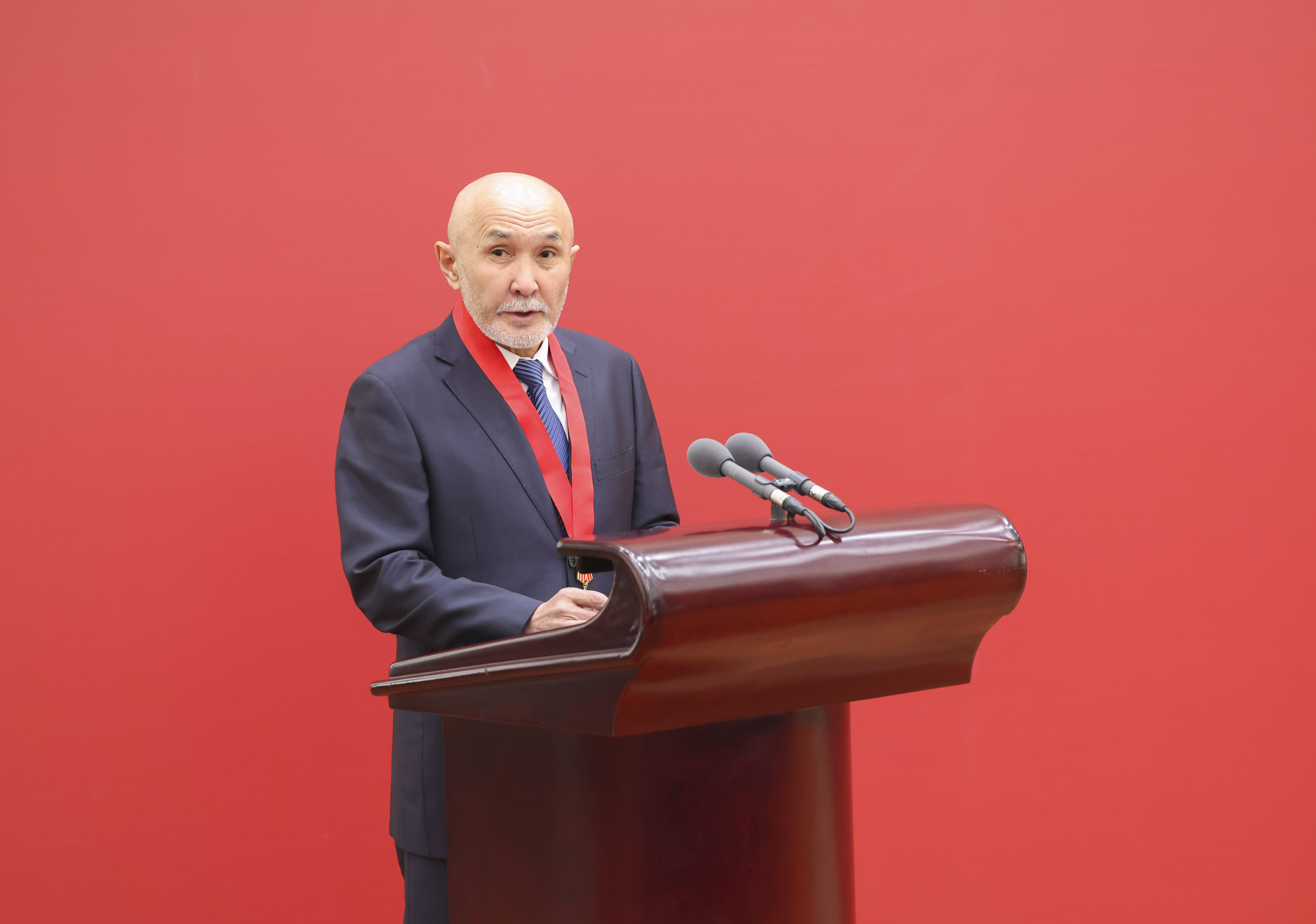Daqing, My Second Home
By LONG Yun, BI Weizi & LI Liyun
Saulebek Kabylbekov, an ophthalmologist from Kazakhstan, has been living in Daqing, northeast China's Heilongjiang province for 25 years. Today, he speaks Chinese with a local accent and has a fondness for sour cabbage dumplings and sweet and sour pork, two typical dishes of northeastern China's cuisine. He blends in seamlessly with the locals, having fully adapted to the rhythm of Daqing life.
In 2024, Kabylbekov won the Friendship Award presented by the Chinese government, the highest honor for a foreign expert in China, for his contribution to international medical exchange.
A chance to grow

Saulebek Kabylbekov. (COURTESY PHOTO)
In 1998, as a young foreign expert, Kabylbekov arrived at the Heilongjiang Daqing Ophthalmic Hospital to conduct technical exchanges. Little did he know, this would mark the beginning of a two-decade-long journey, establishing himself as a senior foreign expert in the hospital and a highly respected doctor to his many patients.
With nearly 40 years of clinical experience in ophthalmology, Kabylbekov's comprehensive skills and solid expertise have contributed immensely to diagnosing and treating various eye-related diseases.
Recalling the reasons for his extended stay at the Daqing Ophthalmic Hospital, he told Science and Technology Daily, "I was deeply intrigued by the job opportunities here. There are opportunities and significant room for professional growth," adding that he enjoyed the working environment at the hospital which was incredibly harmonious.
From his perspective, he has been able to unleash his talents and further develop his abilities with the development of the hospital.
Bringing light to patients
During his work, Kabylbekov's efforts know no bounds. Leading by example, he spearheaded the establishment of a research group focusing on glaucoma (group of eye diseases that can cause vision loss). With a vision to empower patients with knowledge, Kabylbekov's glaucoma research group aimed to popularize knowledge about the disease to the public, encouraging early diagnosis and treatment.
Furthermore, he has been playing a pivotal role in advancing other cutting-edge operation technologies.
As the hospital developed, it provided public information about eye health in villages, communities, factories, public institutes, and kindergartens.
For years, his footsteps echoed across the urban and rural areas of Daqing and even ventured into the western regions of Heilongjiang province, bringing light to those in need through surveys and free clinics.
His endeavors have not been in vain. According to this Kazakhstani ophthalmologist, the declining number of glaucoma patients seeking treatment at Daqing Ophthalmic Hospital does, to some degree, show the success of their efforts.
Heartwarming journey
Kabylbekov's passion is infectious. His colleagues commended his meticulous and dedicated work ethic.
Having treated over 200,000 Chinese patients, Kabylbekov's commitment to service runs deep. He has not only healed diseases but also enlightened minds.
One particularly touching moment in his medical career involved treating a pregnant woman with severe eye problems. Despite her fears of medication affecting her unborn child, Kabylbekov spared no effort to deliver detailed explanations and professional instructions, eventually leading to her full recovery and the birth of a healthy baby.
In addition to providing expert medical care, he goes above and beyond by covering transportation costs for those facing financial difficulties.
Feeling the pulse of China's development
Kabylbekov remains focused on the advancements in the eye care industry. He lauded the rapid development of medical technology not only in China, but globally. He noted China's proactive approach to investing in cutting-edge technology and equipment, contributing to its faster-paced development in the field.
He is both a beneficiary and contributor of international cooperation. Reflecting on China's technological strides, Kabylbekov attributes this to initiatives like the Belt and Road, fostering cooperation and development among nations. He believes in the principles of mutual benefit and win-win cooperation, underscoring the importance of exchange and collaboration in advancing medical science.
"I will try my best to serve China and my patients here," Kabylbekov said about his future plans, adding that he cherishes the deep-rooted friendships and the prosperity he witnesses. For him, China is not just a place of work, but a home, and Daqing, with its warm people, holds a special place in his heart.
This article is also contributed by Heilongjiang Provincial Science and Technology Department.







